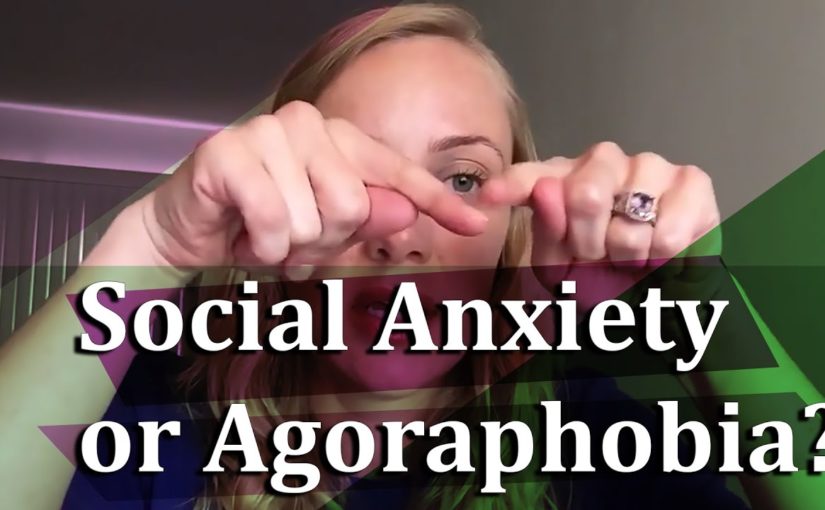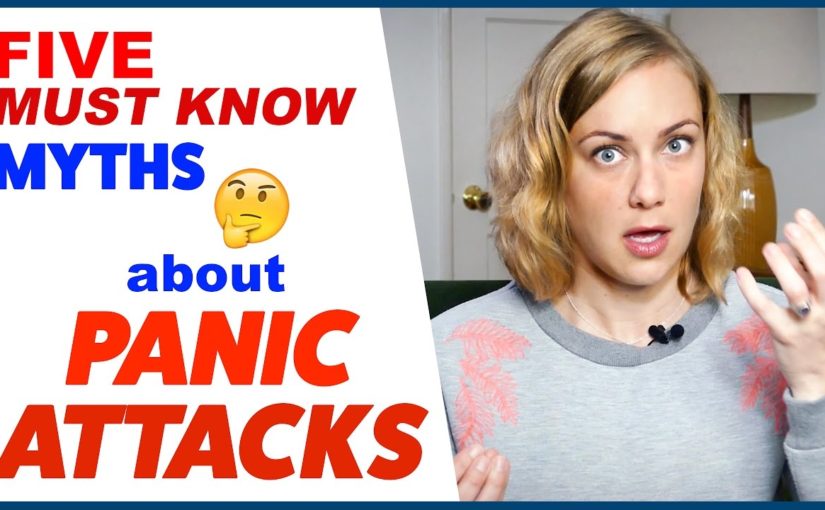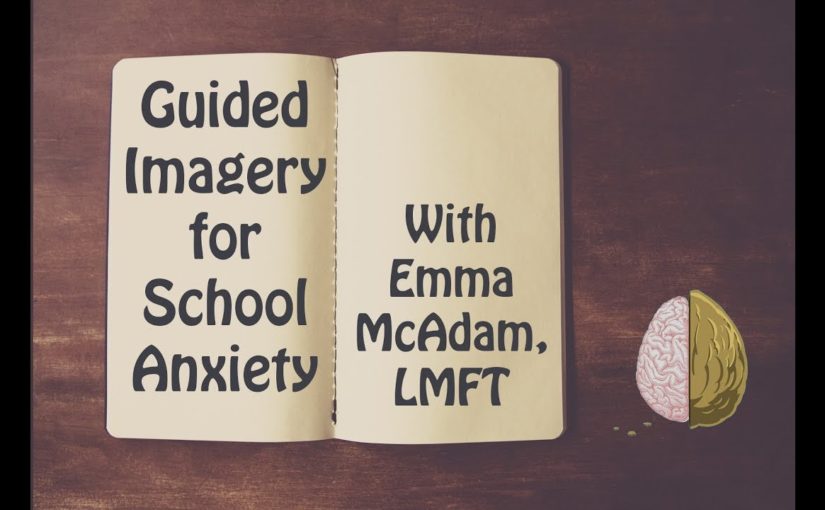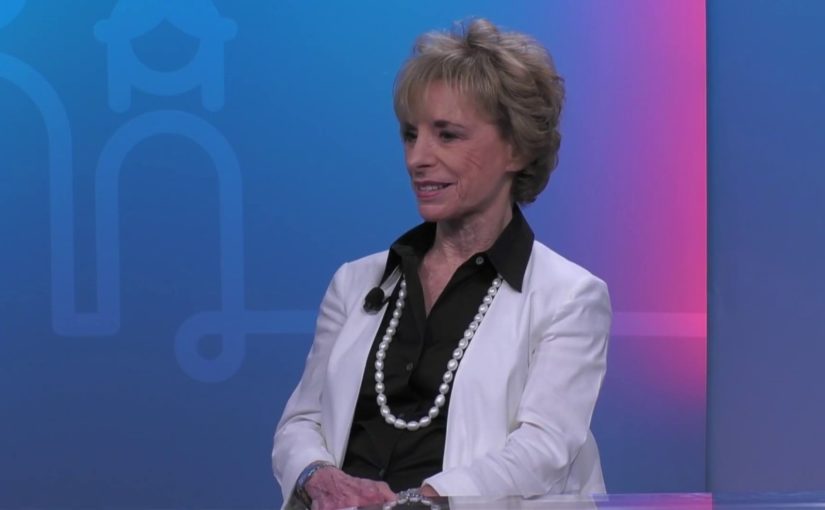Tag: social anxiety
How to Spot the Signs of Social Anxiety
6 Common Causes of Anxiety
Social Anxiety or Agoraphobia?
Hey everybody. Happy Thursday! And when it's Thursday … what is it? I'm doing an FAQ video or things in the media. There are a lot of things in the media. Many of you have commented. Don't think that I have missed it. But I had a couple of good questions today that I wanted to address. And I've been doing some thinking about videos, and I think I'm going to do my journal topics as separate videos.
I find many of you have let me know that you really like those short, clip videos, where it's just something inspirational to kind of help get you through your day. So instead of doing two videos a week, now I'll do three. And I'll do a, you know, journal topic inspiration. So share your ideas! If there's anything that you've read about, heard about, saw on Pinterest or something tweet it to me, leave it in the comments below. And I shall make a video about that. So today I have two questions, and both of these are really good. So let's get going. First question says, "Hey Kati. First of all very nice video." This person's referring to the agoraphobia video I put out on Monday. If you haven't checked it out, you should check it out.
"I have a question. Describing the disorder you really focused on embarrassment connected to the possibility of getting out of a stressful situation. Does this feeling have anything in common with social anxiety? And if so, what are the main differences?" Because if you remember correctly in my video I talk about agoraphobia being an anxiety disorder. Now the really awesome thing about the DSM … cause I have to put a different book under my thing, because I had to use this to reference … is that it shares with you differential diagnoses, which is really the way of saying how is this different from the other disorders. Because a lot of them seem very similar. How do we differentiate between the two? And it says, I'm gonna read this to you, 'cause I tend to blab so sometimes it's good if I just read you what it says.
So with reference to social anxiety disorder, or social phobia, it says "agoraphobia should be differentiated from social anxiety disorder based primarily on the situational clusters that trigger the fear, anxiety or avoidance, and the cognitive ideation." So in social anxiety disorder the focus is on the fear of being negatively evaluated. If you remember when I've talked about this in other videos, social anxiety is when we fear what other people are thinking of us, what they might say to others about us, that we could be negatively evaluated by them. Agoraphobia is more about trying to get out, having a panic attack, being embarrassed about trying to leave. Now I see how these kind of go together, but you can also see how they're separated. The social anxiety is more about how we're perceived by others, where as agoraphobia is just the fear, like it says the fear or anxiety or avoidance because we worry about how we'll get out if we have a panic attack.
Or that it could be really embarrassing, because we might stumble, like try to get out really quickly. I hope that that makes it clear. If you need more clarification feel free to re-ask the question and I can blab some more. Okay. Question number two, "Hey Kati my therapist told me she'd like me to see a dietician." Uhh, she didn't! "Only I'm not sure I really need it." You never think you do. Sorry I'll stop with my commentary. "I do some eating disorder behaviors, but I still eat enough most days. And the behaviors are only there for a few days, and then I have other behaviors. Different behaviors that switch off and on. And I've only seen my therapist for two times now. And I've only really told her what went wrong. I don't want to waste peoples' time going to a dietician when I don't really need it." This got so much chatter on the website.

Holy schmollies, you guys really had opinions about this. So I thought, let's talk about it. Now seeing a dietician is good. It's something that we can all, all of us who have any kind of eating disorder behaviors. I know you're thinking but I don't really think I have an eating disorder. I only purge sometimes or I only restrict, but it comes off and on. I have a video from like I don't know … any of my OG's out there? It's like two years ago, my original FAQ video. I'm wearing like a teal sweater. It says FAQ on the thumbnail so just search. Well no you can't, because all of my videos would come up. But anyway it says FAQs. One of them is If You Think You Have an Eating Disorder You Probably Do.
Just let that wash over you for a second. Because I know it's hard, and we always think "But it's not that bad. I don't do it all the time. It comes and goes." Eating disorders are sneaky. They like come in, I feel like they're like ink in water, where all of a sudden the water is turned a whole different color. But we're like but it only just started this little. It's crazy. It can get in there, morph, change. As soon as you think you understand where it comes from and what it's doing, it's already changing to something else. And so even when we feel like "it's not bad enough to get more help" we still need to get more help. Because the sooner we get the help, the better. And seeing a dietician, whether we binge, whether we purge, whether we binge and purge, whether we restrict, whether we over exercise.
It doesn't matter. We're using any kind of eating disorder behavior, a dietician can really help. They're not going to make you get fat. They're not gonna make you eat too much food. That's part of their job. They're going to work with you to put together a plan, set goals with you, and they're going to check in with you. And they're going to challenge you, but it's all part of the process. Just like with the therapist, I'm not going to make you go all the way at once. Like we're gonna go through this, just, you know, get through all this shit and move on. That's not how it works. It's a process, and they're going to work with you. And I encourage all of you, when you're therapist says you know you should probably see a dietician, do it. They are really helpful. They are amazing. They will definitely help you manage those symptoms. They'll ask you the hard questions about food and what you think about food.
Because we know it's not about the food, but we're using food to cope. And so they will work on that spot with you so your therapist can help you better manage the emotional stuff. Together you get the best results, so don't think you have to be on death's doorstep to get help. Don't think that you have to be really thick in your eating disorder to get a dietitian to help you.
You can all benefit. If you're struggling with any eating disorder behavior please see a dietitian as well as a therapist. It gives you the best outcome. Promise. Okay. I love you all. I will see you, I'm not sure when I'll put out the journal topic video. You'll just have to subscribe, so you don't miss it. And then I will see you all on Monday. And some of you I'll see in New York. Yea! Okay, bye! Subtitles by the Amara.org community.
As found on YouTube
5 PANIC ATTACK MYTHS | Kati Morton
Hey everybody! Today we're gonna be talking about the five myths of panic attacks. So let's get into them. *intro music* Now the first myth is that they're caused by stress and anxiety. If you yourself have ever suffered with a panic attack you know that they come out of nowhere we don't even know what necessarily triggers us, something may not even trigger us. It's not necessarily something that environmental or something that's occurring right now. Panic attacks honestly happen because our system gets overwhelmed and overloaded and sends us into a fight or flight response, AKA, a panic! I also don't like this myth because it implies that we have control over it like we can stop our panic attacks if we just change our environment and the truth is the panic attacks will happen in a wide variety of places for a wide variety of reasons those of which we aren't even privy too.
We don't even know why they happen. And the second myth is that they're going to make us go crazy. Panic attacks, if they happen for too long we're just gonna go insane. I've heard a lot of my clients say this, that it feels like they're losing their mind and they wonder if it can cause other mental illnesses to occur and the truth is the panic attacks usually happen because we have some underlying mental illness, whether it be another anxiety disorder or depressive disorder, any kind of mood disorder can be a lot of different components that can lead us to having panic attacks and being more predisposed for panic.
The truth is that panic attacks in no way affect the functioning of our brain as a whole in the hormones, like dopamine, norepinephrine or any kind of neurotransmitter that could cause another mental illness or psychosis or quote, unquote, make us go crazy. The third myth about panic attacks is that having a severe one is going to cause us to go into cardiac arrest. I've heard from a lot of my clients that because a racing heart is one of the symptoms that they experience most with panic attacks, or even the build-up to a panic attack, they'll start feeling their heart race and they worry that if they're in a really extreme or intense panic attack for a sustained period of time, let's say for an hour, that they're going to go into cardiac arrest and this is going to be how they're going to die and it sends them into panic even more quickly and keeps them there longer.
But the truth is and this is something important to kind of note and to tell yourself, maybe when you're, you feel those symptoms happening is that our heart is extremely strong it can beat at over 200 beats per minute for days, if not weeks especially if we're young, it can be four weeks at that rate without sustaining any damage. I just want to take a second to let that sink in. We can essentially be in panic for a really really long period of time without our heart ever being hurt or even potentially considering it going into cardiac arrest or having any kind of malfunction.
Therefore on average, panic attacks last from three to ten minutes so a three to ten minute panic attack is not in any way going to harm your heart or cause a heart attack. The fourth myth is that they're used as a way to get out of something we just don't want to do. Uh, if we hear that one more time. Am I right? For those of you who don't understand what a panic attack is or what can cause a panic attack, like I stated earlier, they come out of nowhere. They are not triggered by our environment, it's not due to an over reaction by up if usually a result of another underlying mental illness and these feel like they come out of nowhere, happen quickly and can stay and they're extremely uncomfortable, so if you found yourself having these attacks anytime you went into the grocery store, then you would start to not want to go to the grocery store or whenever you're in a crowded place, like I've had a lot of clients are like, "If I'm ever in a busy thing like a club or a concert or even like a really busy day at the mall," they've had panic attacks, we don't really know why but they're then attaching busyness and a lot of people with panic attacks therefore if someone's going to call you, if a friends going to ask you to go out to a party, and you think it's going to be a small group you're like sure, then later you find out there's going to be like 50 people there, you're like I'm gonna have to say no.
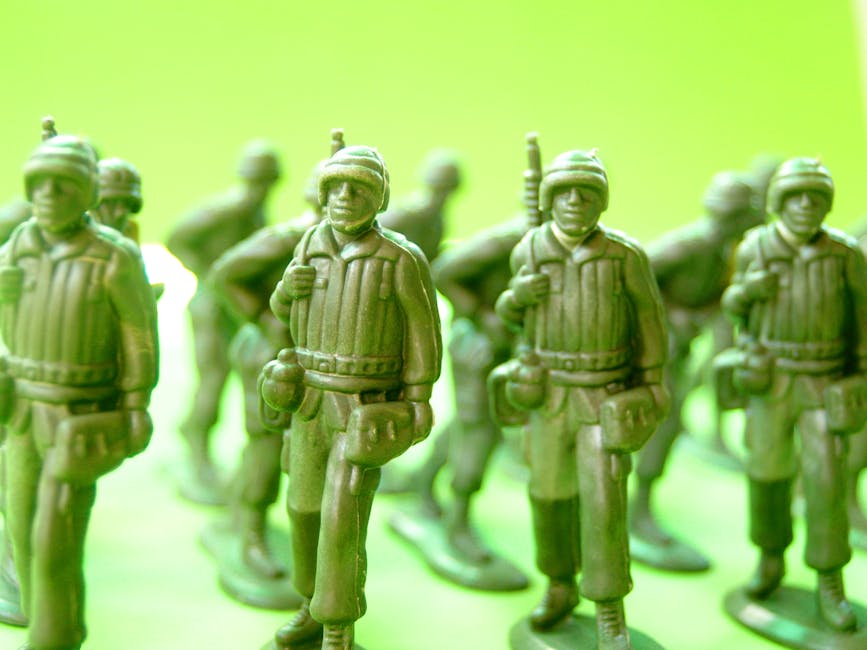
But we need to understand that panic attacks and panic disorder is a real diagnosable mental illness and because we don't know what triggers them and they come out of nowhere we fear the next one may be just around the corner. So of course we're going to limit the amount of things that we do until we can get them more under control. And the fifth and final myth about panic attacks is that there is nothing that we can do to treat them. Meeh. That's wrong, there are a lot of things we can do to treat them. Yay! Number one, and something that I've been reading because if any of you follow me or have been on the live streams or follow me on snapchat or Instagram, I have been working very hard at your anxiety workbook and I'm super excited for it to come out, but the thing that I learned through all the research I've been doing, is that progressive relaxation, you know like clench your feet, relax your feet, clench your calves, relax your calves, that type of exercise, doing that 20 to 30 minutes a day can calm our system down to such an amount that those who struggle with panic disorder may rarely, if never again, if they continue to do the progressive relaxation each day, they may never have the symptoms again.
They're still doing more studies on it but progressive relaxation is, surprising to me, but it's so amazing and been so helpful and beneficial. And the other is that CBT, so cognitive behavioral therapy, is also helpful with panic disorder and those of us who struggle with panic attacks because a lot of times we build up the panic and our system's fight-or-flight response by worrying about all of those things like it's going to cause a heart attack, I'm going to be super embarrassed, I'm going to go crazy, I may fall over or faint, all those worries and kind of falsely held beliefs that we have, CBT can really help us challenge those.
Also medications have been shown to be extremely beneficial SSRIs, SNRIs, and benzodiazepine have been shown to be extremely helpful for those of us who struggle with panic disorder and I know that not all of you are interested in taking medication this is another option that's available and if you're out there and you're struggling with panic attacks and you feel like they're happening with more frequency, it's controlling the way you live your life please reach out, please talk to someone. There are different professionals and a ton of help available, we just have to ask for it and we just have to reach out and I know it's scary to do the first reach out, but know that we're used to managing it we can handle it. We are kind, calm, wonderful people and maybe bring an extra supportive person with you to that first appointment or maybe they make the call and set up the appointment for you.
Find ways, use your resources to get the support and help that you need. Please share this video, I think a lot of people talk poorly about panic attacks or don't understand and I also put some in here, if you didn't notice for those of us who struggle and the myths that we tell ourselves about panic attack because I think both are really important to note, and leave in the comments what are some myths that you've heard. What is the way that you talk back to that, so that we have as a community are raising the stigma associated with mental health. I love you all and I will see you next time. Bye!.
As found on YouTube
6 Common Causes of Anxiety
Guided Imagery for School Anxiety-Social Anxiety Treatment-Anxiety Skills #15
Hi, I’m Emma McAdam, a licensed therapist, in this little Nugget of Help we’re going to apply some tools from adoption and commitment regiman to help with school and social anxiety. This activity is meant to help build an increased ability to face anxiety eliciting status like institution or social locates The purpose of this activity is not relaxation but resilience meaning the ability to experience uncomfortable perceptions with strong empathy and pacify. So during this activity You may feel a couple of spirits, some comfortable and some unpleasant Please stick with the activity through the end and I predict you’ll develop a greater ability to experience your excitements without them limiting you So first check in with yourself, a be engaged in a comfortable locate close your eyes and Take a depth breath Let it out gradually Take a moment and notice your feet wiggle them Now, press them against the floor.Just feel what the flooring feels like pressing back up against your feet Now move your awareness up your legs clench your calves and then soften those muscles Then clench the big-hearted muscles in your thighs for a moment Now relax them and breathe in and breathe out Now move your awareness up to your belly You may feel some hostility here and that’s okay Pretend you’re scientist who has never noticed what that feeling is like Explore that feeling in your stomach and describe it in your psyche. What does it definitely sounds like? Allow it happening there while clenching your stomach muscles as tightly as you can Now breathe out and then take a big inhale Expand your stomach out as far as it becomes Hold that gulp and notice what that feels like Let that air out and move your awareness up to your chest and back Tense, those muscles attract your shoulders up to your ears and hamper them there tightly, clenched hard Then softened those muscles and breathe out gradually Now clench your biceps your upper arms and then liberate Now clench your fists and liberate Move your awareness up to your face and seize your face muscles tightly And now lightened those muscles in your face Now we’re going to do a speedy check of your bodily awareness, what do you notice in your figure? There might be some places in your organization that feel warm soft and comfortable notice those And there might be some residence that feel tighten or pain notice these areas You don’t need to label these even worse or be discouraged, but merely notice them Notice yourself breathing what does it feel like to breathe? Take one more deep breath in and give away very slowly What feelings or sensations are you knowing right now? Some of them may be painful and that’s okay Just notice them, be curious.What does it feel like to feel those sentiments without needing to escape them? Send each of your feelings a bit mental hug. It’s okay to have feelings. Notice if there are any more spirits, perhaps quieter emotions that “youre gonna” feeling too what else are you noticing? Be puzzled. You don’t need them “re going away”. You can treat feeling them. How would you describe each of these sentiments? Take one more deep breath and notice yourself breathing Now let’s envisage yourself going to the first day of clas The bus pushes up to the front of the school and as you get off the bus you feel your gut tighten a bit Perhaps you feel a lot of energy coursing through your torso You may feel a little tense or jumpy and that’s okay It’s perfectly normal to be having these feelings and superstars Most of the other adolescents are feeling a little anxious and aroused extremely You can administer feeling this action Anxiety and fervor are the same physiological response in our body Both of them prepping us for action to perform well, and it’s okay to have this feeling in your person Your old-time habitual suppose is I need to escape or I can’t handle feeling this way But now you remind yourself I can administer feeling this course and be okay.I Don’t need my agitations to go away for me to be alright, I can feel them and notice them and While they are uncomfortable, they can’t trauma me. I is in fact safe in this moment You look around and remember that probably most of the other children are also feeling a little watchful or stimulated right now It’s perfectly natural to feel this way, and it’s not going to harm you You alter your attention back to your breathing and as you step toward the school you notice something beautiful What is it? Perhaps the clear sky or the light-green grass Take a time and notice that one pretty thing You hear lots of adolescents are running noisily toward the school some are meeting up with their friends some are alone suddenly you were supposed to meditated What if no one will be my friend? or You worry that people are looking at you in a funny way.For a moment You have visions of a catastrophe run through your psyche. You’re afraid of being rejected being alone being a loser But you rapidly notice those remembers they are distressing and loudly judges, but they are just supposes Just as you can notice yourself listening to my expression at this moment. You can notice yourself having those designs They aren’t truthful They don’t help you be the person that you appreciate Because you appraise being style, you be concerned about connecting with people You want to be a good friend. You can act on those qualities and good things will happen People will want to be friends with you when they get to know you because of who you are You notice those frightening thoughts and you imagine them written on the side of the bus and the bus begins to pull away You remember that you’re okay You have some inner endowments to share with the world. Even if you are quiet or observant instead of a thundering idiot. Take a time and think of one of the talents that you have One thing that you are good at like has become a good listener or noticing others needs for example You remember some of the people who love you and looks just like you, your friends your parents You remember that you are safe right now.It may feel uncomfortable But you can handle that You may feel a bit of distres But you can open up some opening for that suspicion inside of you. You don’t need to represent that nervousnes go away to be okay. Imagine that your anxiety is a little child saying What if no one likes me? and you say Come now little tension. I want to give you a hug See it’s awkward, but you can experience it and it doesn’t trauma you. You walk through the figurehead entrances of the school and there’s a lot of noise and commotion Not your favorite So you thoughts over to your locker, You previously know where it is because you went to the open live And you open your locker and a gentle float of your favorite flavor comes out of it You waste a minute.Just bask that fragrance Breathe in deeply Now you walk to your first class, you know Right where it is and you arrive a few minutes early you take your seat and look around There’s a few other adolescents sitting down and you say hi to the girl sitting next to you She says hi back, and then suddenly you feel so awkward You start worrying that you should have said more or maybe you shouldn’t have said anything or that maybe you didn’t determine fairly nose contact and unexpectedly you’re hyper aware of how you’re sitting in your chair and you can feel Your heart thrashing a little faster and your hands sweating a little bit and then you notice yourself Tensing up a little and you can notice your thoughts Now in this moment notice what’s going on in your person and in your mind.You retain what your mentor said you don’t actually act tricky you only feel clumsy No one else has even paying attention to you. They’re all anxious and elicited about their first day of school And they’re too busy worrying about what parties “ve been thinking about” them to notice you You can still feel that tight feeling in your tummy and your sweaty palms and you tell yourself.That’s ok It’s ok to have uncomfortable perceptions sometimes. I can let myself feel this experience without needing to escape it or make it go away You know that it never helps to beat yourself up so instead you precisely testify yourself a little compassion You going to go to noticing for a while and you sifted through your experience in this moment. So Sift is an acronym S is for agitations Notice your physical perceptions precisely notice them both cozy and disagreeable. I is for epitomes What do you envisage in this moment? Can you notice those portraits and then bring yourself back to center with the wheeze? Can you notice those portraits in your manager And then bring yourself back to center by acknowledge your wheeze F is for feelings, what ardours are you knowledge? Are you having more than one? What is one thing you’re elicited about And the T is thoughts Notice, what are you thinking? You don’t need to duel or change your thoughts. Just notice yourself having them You take another deep gulp and you’re feeling kind of proud That right now you’re experiencing a little anxiety But you’re okay with it It’s a little embarrassing But you’re beginning to develop the skill of letting yourself feel it You give yourself a little imaginary pat on the back for being indomitable For letting yourself do hard things and feel hard things and stick with it The bell sounds and the coach starts class he goes through the roll.You Pay close attention waiting for him to call your name.And then when he does you say here and Maybe you wonder a little if you did, okay, but no one even looks at you They’re all exactly paying attention to their own stuff right now You remind yourself that you can do hard things You take another deep gulp and tell it out gradually Then the teacher extends out a sheet of paper to everyone on it is an icebreaker activity You detest these. you have to go around the room and find someone who has broken their arm and someone who’s lived in another state and someone who Has a baby reptile Maybe you’re afraid that you’ll be awkward You might worry that no one will ask you questions or that you’re afraid that people will ask you questions You press your feet into the floor feeling the flooring pulping back up at you You notice your panic It’s telling you to run away, to avoid, to hide to be silent and you notice that fear You be recognized, you say hello fear.I’ve noticed you’re trying to hang out with me today I know I can’t meet you go away But you’re not the boss of me and I still get to decide what matters to me so fear You can restrain constructing suggestions, but I know what’s more important You is a well-known fact that you don’t like these icebreaker works But you also know that you wishes to be oblige some friends and you don’t want to isolate yourself on the first day So you look around and consider another minor who seems kind of hushed and is standing by himself You walk over to him and you feel a little awkward, but you don’t actually seem touchy from the outside. You look perfectly normal When you get to his desk, you look down at your article and you ask him.What’s your favorite notebook? He seems a little shy so you been listening while he says you about the book series that he likes then he looks at his paper and asks you What’s your favorite journal? You tell him about your favorite work and what you like about it and you can see in his smile that he’s speak that one And he likes it extremely. He must be a special type of nerd like you You stand around and other adolescents comes down to you and ask their questions you ask yours and pretty soon your newspapers all filled out The teacher gets back up. He seems nice and also a little funny and you think you’ll like his class The rest of that class leads somewhat smoothly you only sit in your chair and predict the syllabus while the educator tells you the class Rules and talks about what you’re going to learn so far so good You feel proud of yourself after your first day of clas There were hours “thats been” awkward, but that’s okay and there were experiences that were good You learned more about what to expect and although you felt some anxiety.You didn’t let it boss you around You were gentle with yourself Patient with your sentiments and whizs and you two are heroic to show up and feel lots of things today Excitement beauty anxiety hope for new friends and a sense of confidence in your ability to do hard-bitten things Now come back to the present moment Notice your feet on the floor notice your wheeze Think back over this exercise Was it unpleasant at times? But you fastened with it.You chose to do something challenging because something else mattered more than avoidance Take a deep breath and give yourself a little pat on the back for letting yourself experience your passions You are on the pathway to growth an emotional strong Keep up the good work.

As found on YouTube
Social Anxiety vs. Shyness
> Now afraid of being adjudicated by others, being selfconscious, and daily social situations and avoiding meeting newpeople, these could all be signeds of social suspicion disorder, but some mightthink No. I’m just balk, I’m introverted Doctor what is the difference? when youhave patients come in and you’re and “youre telling” …> You said it! These … and peoplereally misunderstand social phobia so let me merely show. It’s not suspicion of beingsocial or anxiety of educating, it is fear of scrutiny, evaluation, arbitration, makingit chump of yourself, that’s what people fear. That’s what they bring into theroom, that’s what they bring into the situation.> Is it like what if they don’tlike me, what are they about me?> What if they don’t like me, why if…It’s what if I’mjudged, it’s what if I I imply it’s it’s nervousnes of scrutiny, and you don’t it’s it’snot paranoia but I’m walking into the room instead of just maybe looking forsomeone to talk to or noticing a friend I’m already am concerned about anxiety of beingjudged.> you slams down and you automatically …> I’m afraid. So you knowI I perhaps I appear like a shy person but I’m just the shy person is just shythat’s a temperament or a personality trait, and shyness can be grown out of aswell. We talked about shy adolescents who blossom as adults. right But that shychild wasn’t fearing scrutiny, that reticent child perhaps simply prefer to read ratherthan be outgoing or the rowdy one in a group.> Right. Where someone withsocial feeling really is just they’re panic-stricken inside.> Right. Terrified.Terrified and you don’t know what it is.> So how do you work through something likean in social feeling because as we need to live in the world, we need to go to work .> Right. So that’s where cognitive behavioral therapy jobs highly is a good one, because with your the social socially phobic person and you tell me I walkinto a apartment and I mull I look nice, and I suppose I’m dressed well, and whateverand the first expectations I have, are what are they what are they thinking about mehow are they judging me, what if I say a stupid thing, what if the wrong wordsfell out of my mouth So I asked you, well have you had any evidence but that’sever happened ..

As found on YouTube
